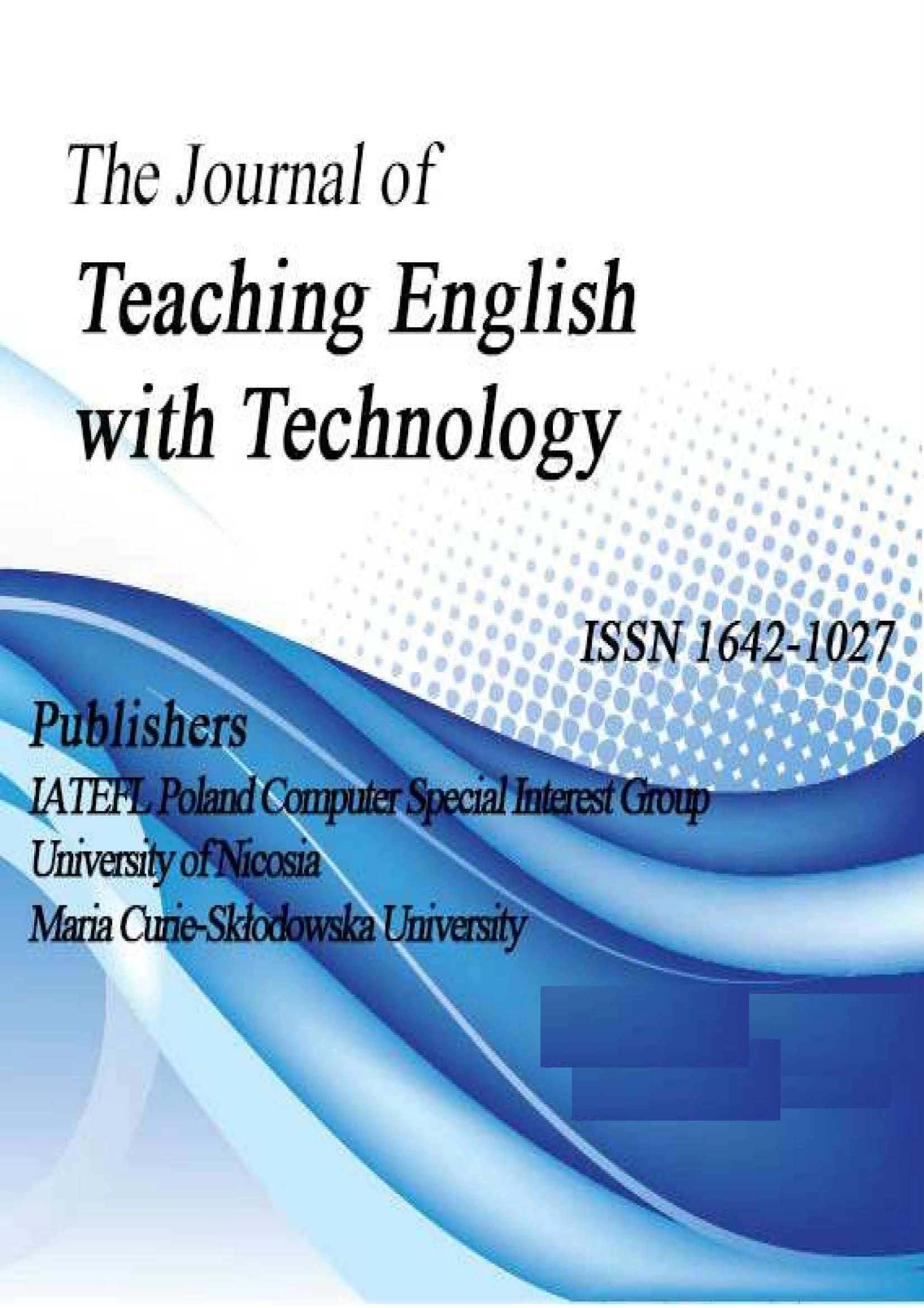THE USE OF INTERNET RESOURCES AND BROWSER-BASED VIRTUAL WORLDS IN TEACHING GRAMMAR
THE USE OF INTERNET RESOURCES AND BROWSER-BASED VIRTUAL WORLDS IN TEACHING GRAMMAR
Author(s): Mariusz KrukSubject(s): Foreign languages learning
Published by: IATEFL Poland Computer Special Interest Group and The University of Nicosia
Keywords: the Internet; browser-based virtual worlds; the second conditional
Summary/Abstract: Online virtual worlds are becoming important tools in foreign/second language instruction in view of the fact that they enhance learner motivation, promote autonomy and social presence in a 3D environment. Virtual worlds are a type of reality in which students can meet and communicate with other learners in the target language using text, voice or video as well as share ideas related to language learning. Furthermore, virtual worlds provide learners with the opportunity to take part in virtual language courses or lessons as well as visit places connected with the target language culture. The aim of the study reported in this paper was to investigate the effectiveness of using online activities and a browser-based virtual world in teaching the second conditional in English. The sample consisted of 27 Polish senior high school students who were randomly divided into two groups: the treatment group (N = 13) and the control group (N = 14). The data were obtained by means of a grammar test administered before (prestest) and after the treatment (immediate posttest and two delayed posttests), a background questionnaire as well as an evaluation sheet, were analyzed quantitatively. The results indicate that the treatment students benefited from the instruction with the benefits being visible not only immediately after the treatment but also after four and eight weeks later.
Journal: Teaching English with Technology
- Issue Year: 14/2014
- Issue No: 2
- Page Range: 51-66
- Page Count: 16
- Language: English

